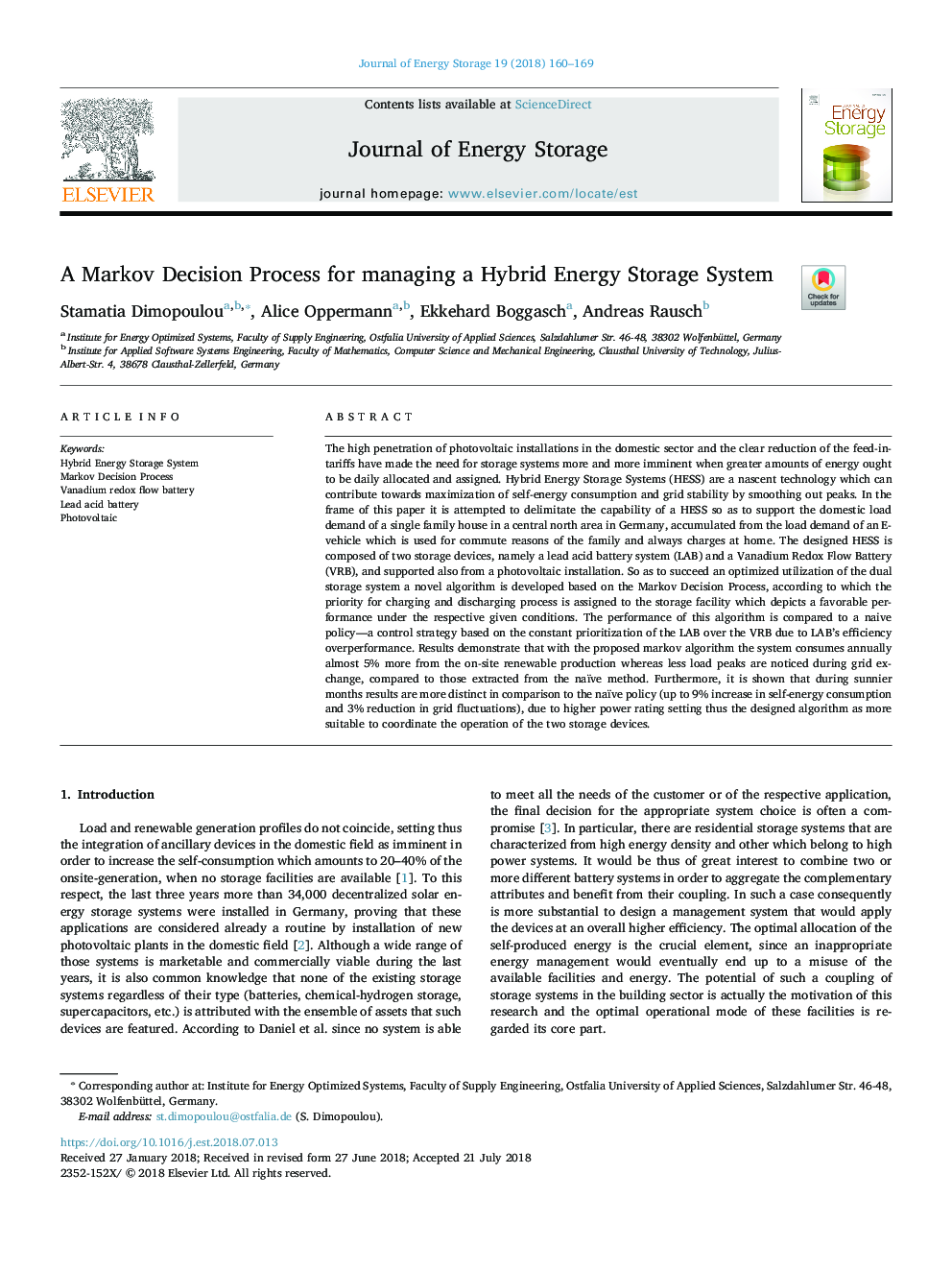| کد مقاله | کد نشریه | سال انتشار | مقاله انگلیسی | نسخه تمام متن |
|---|---|---|---|---|
| 7539599 | 1489001 | 2018 | 10 صفحه PDF | دانلود رایگان |
عنوان انگلیسی مقاله ISI
A Markov Decision Process for managing a Hybrid Energy Storage System
ترجمه فارسی عنوان
یک فرایند تصمیم مارکوف برای مدیریت یک سیستم ذخیره سازی ترکیبی
دانلود مقاله + سفارش ترجمه
دانلود مقاله ISI انگلیسی
رایگان برای ایرانیان
کلمات کلیدی
سیستم ذخیره سازی ترکیبی، فرایند تصمیم مارکوف، باطری جریان بازو وانادیم، باتری سربی - اسیدی، فتوولتائیک،
موضوعات مرتبط
مهندسی و علوم پایه
مهندسی انرژی
انرژی (عمومی)
چکیده انگلیسی
The high penetration of photovoltaic installations in the domestic sector and the clear reduction of the feed-in-tariffs have made the need for storage systems more and more imminent when greater amounts of energy ought to be daily allocated and assigned. Hybrid Energy Storage Systems (HESS) are a nascent technology which can contribute towards maximization of self-energy consumption and grid stability by smoothing out peaks. In the frame of this paper it is attempted to delimitate the capability of a HESS so as to support the domestic load demand of a single family house in a central north area in Germany, accumulated from the load demand of an E-vehicle which is used for commute reasons of the family and always charges at home. The designed HESS is composed of two storage devices, namely a lead acid battery system (LAB) and a Vanadium Redox Flow Battery (VRB), and supported also from a photovoltaic installation. So as to succeed an optimized utilization of the dual storage system a novel algorithm is developed based on the Markov Decision Process, according to which the priority for charging and discharging process is assigned to the storage facility which depicts a favorable performance under the respective given conditions. The performance of this algorithm is compared to a naive policy-a control strategy based on the constant prioritization of the LAB over the VRB due to LAB's efficiency overperformance. Results demonstrate that with the proposed markov algorithm the system consumes annually almost 5% more from the on-site renewable production whereas less load peaks are noticed during grid exchange, compared to those extracted from the naïve method. Furthermore, it is shown that during sunnier months results are more distinct in comparison to the naïve policy (up to 9% increase in self-energy consumption and 3% reduction in grid fluctuations), due to higher power rating setting thus the designed algorithm as more suitable to coordinate the operation of the two storage devices.
ناشر
Database: Elsevier - ScienceDirect (ساینس دایرکت)
Journal: Journal of Energy Storage - Volume 19, October 2018, Pages 160-169
Journal: Journal of Energy Storage - Volume 19, October 2018, Pages 160-169
نویسندگان
Stamatia Dimopoulou, Alice Oppermann, Ekkehard Boggasch, Andreas Rausch,
